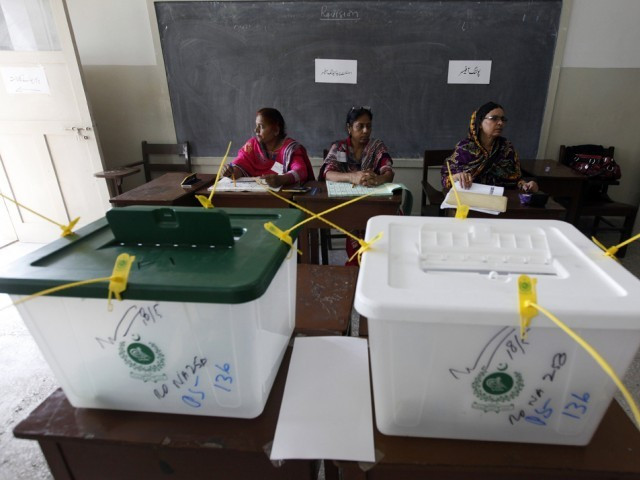In pursuit of free and fair elections
Reform committee has suggested amending the Constitution to replace the ECP leadership with retired civil servants

A file photo of ballot boxes. PHOTO: REUTERS

A number of studies conducted by independent think tanks have concluded that no election held since 1977 was free from the stigma of rigging. Most were manipulated by the deep state in order to bring in governments willing to serve its agenda formulated in a particular strategic environment of a given period. So, all these years the civil administration that had manned the ECP and its judicial leadership never had the chance to build their respective capacities for the job. In fact, for its own reasons, the state would manoeuvre only those persons into these jobs who would take orders without question and who would go home on retirement without having any knowledge of what had happened during elections held under their watch.
This means that today we have mostly clerical-minded officers manning the ECP as well as compromised judicial officers leading it. The foremost task facing the government currently, therefore, is to reform the ECP’s administration in such a way so as to build the capacity of the permanent manpower of the Commission, and if possible to create a separate cadre for the purpose, or at least enable the Commission to have enough trained personnel on its permanent staff to be able to post one ECP officer at each polling station, to oversee the conduct of the temporary staff on election day.
A 33-member electoral reforms committee of parliament was constituted on July 25, 2014 to evaluate the shortcomings of the previous electoral process and make recommendations to enable the holding of free, fair and transparent elections. The committee is being chaired by Finance Minister Ishaq Dar, while Zahid Hamid heads the sub-committee assigned to review existing electoral laws and over 1,200 proposals received from various quarters in this regard. The sub-committee is said to be looking into proposals regarding introduction of latest technology for casting votes (use of electronic voting machines and biometric verification), the criteria for scrutinising the nomination papers of candidates (under Articles 62-63), voting rights for overseas Pakistanis and other matters.
Acting on the recommendation of the committee that the ECP undertake a pilot project regarding the use of latest technology in elections, the biometric verification system was tested on an experimental basis in the NA-19 (Haripur) by-election. It was found to be inadequate, not because of the system, but due to non-availability of fingerprints in the NADRA database, as well as invalid CNICs, blocked CNICs and calloused fingers that were not recognised by the system. The poll body report has recommended that the multiple pilot projects using biometrics should be continued in different by-elections until the achievement of a successful rate, where no legitimate voter would be deprived of getting authenticated because of any technical or operational reason. One of the proposals under consideration of the reform committee has also suggested amending the Constitution to replace the ECP leadership with retired civil servants of good reputation because judges are trained to sit in judgment after a crime has been committed. They are not trained to prevent a crime. This is what a civil servant is trained to do, especially while administrating a public function. This is a proposal that should indeed be given serious consideration.
Published in The Express Tribune, August 31st, 2015.
Like Opinion & Editorial on Facebook, follow @ETOpEd on Twitter to receive all updates on all our daily pieces.















COMMENTS
Comments are moderated and generally will be posted if they are on-topic and not abusive.
For more information, please see our Comments FAQ